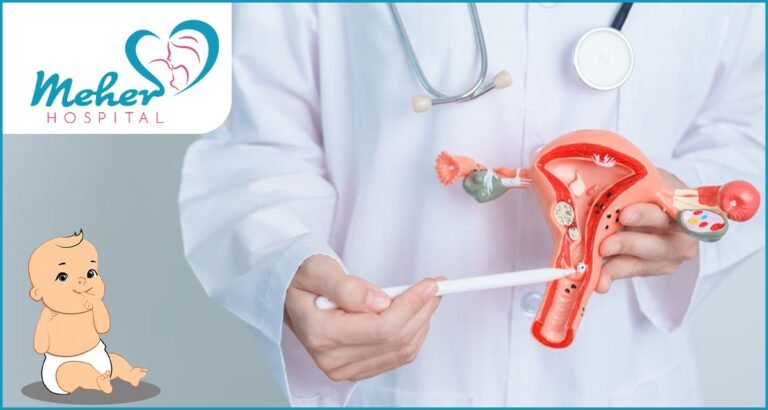Endometriosis is a serious and often painful disorder that affects millions of women worldwide. Despite its widespread occurrence, many individuals are ignorant of what endometriosis is and how it might affect fertility.
Owing to this, today we’ll look at the basics of endometriosis, including its symptoms, diagnosis, and most importantly, the severe impact it has on fertility and women’s reproductive health. So without further ado, let’s get started.
What is Endometriosis?
Endometriosis is a chronic condition where tissue similar to the lining of the uterus, called endometrium, grows outside the uterus. This tissue can be found on organs within the pelvic region such as the fallopian tubes, ovaries, and the outer surface of the uterus.
During the menstrual cycle, this tissue behaves like the endometrium inside the uterus, thickening, breaking down, and bleeding. However, unlike the endometrium, this tissue has no way to exit the body, leading to inflammation, scarring, and the formation of adhesions.
Symptoms of Endometriosis
Endometriosis can manifest differently in each person; however, typical symptoms may include:
- Pelvic pain: Persistent, often severe pelvic pain is a common symptom of endometriosis, especially during menstruation.
- Painful periods: Women with endometriosis often experience more intense menstrual cramps than usual, which can interfere with daily activities.
- Pain during intercourse: Endometriosis can cause pain or discomfort during sexual intercourse, known as dyspareunia.
- Irregular menstrual bleeding: Some women may experience irregularities in menstrual bleeding, such as heavy or prolonged periods.
- Infertility: Endometriosis is a leading cause of infertility in women, affecting their ability to conceive naturally.
Impact on Fertility
Endometriosis can significantly impact fertility due to several factors:
- Distorted pelvic anatomy: The presence of endometrial tissue outside the uterus can lead to the formation of adhesions and scar tissue, distorting the pelvic anatomy.
This can hinder the movement of eggs from the ovaries to the fallopian tubes, making it difficult for sperm to fertilize the egg.
- Impaired ovulation: Endometriosis can disrupt the hormonal balance necessary for regular ovulation, leading to irregular or absent ovulation. Without regular ovulation, the chances of successful conception are reduced.
- Compromised egg quality: Inflammation and oxidative stress associated with endometriosis can affect the quality of eggs, making them less likely to be fertilized and develop into healthy embryos.
- Altered uterine environment: Endometriosis can create a hostile uterine environment, making it less conducive for embryo implantation. The inflammatory response triggered by endometrial tissue may interfere with the implantation process, reducing the chances of a successful pregnancy.
Diagnosis and Treatment
Diagnosing endometriosis often involves a combination of medical history, physical examination, imaging tests, and laparoscopic surgery to visualize and biopsy the abnormal tissue.
Treatment options vary depending on the severity of symptoms and the individual’s reproductive goals. However, common treatment approaches may include
- Pain management
• Hormonal therapies
• Surgical interventions to remove endometrial tissue
• Assisted reproductive techniques such as in vitro fertilization (IVF) for individuals struggling with infertility.
Final Thoughts
Endometriosis is a complex and serious condition that can have a significant impact on fertility and women’s reproductive health, however, by understanding the symptoms, diagnosis, and treatment options for endometriosis, individuals can take proactive steps to manage their condition and preserve their fertility.
Seeking guidance from well-reputed hospitals such as Meher Hospital as well as healthcare professionals (including gynaecologists, fertility specialists, and reproductive endocrinologists) is essential for navigating the challenges posed by endometriosis and achieving the dream of parenthood.

